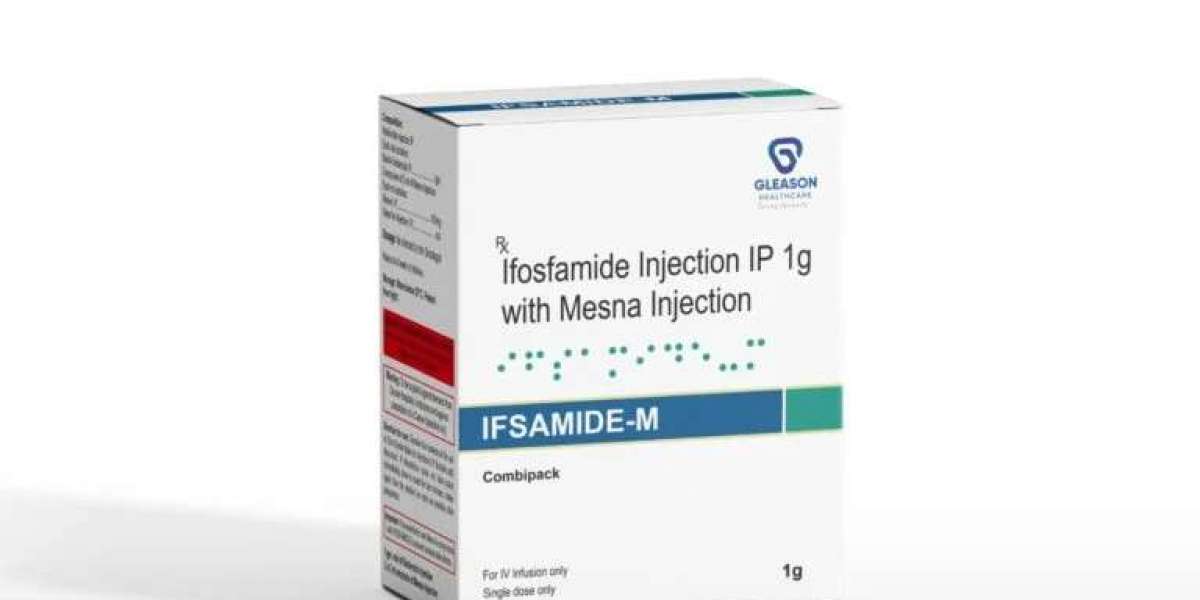Introduction to Ifsamide-M Injection
Ifsamide-M Injection is a powerful pharmaceutical formulation used in the treatment of various medical conditions, most notably in cancer therapy. As a combination of Ifosfamide and Mesna, this injection plays a critical role in preventing chemotherapy-induced side effects, while delivering effective cancer treatment. Understanding the usage, proper dosage, and potential side effects is crucial for both healthcare professionals and patients. In this detailed guide, we explore everything you need to know about Ifsamide-M Injection.
What Is Ifsamide-M Injection?
Ifsamide-M Injection is a combination drug primarily used in chemotherapy for treating a variety of cancers, including testicular cancer, lymphoma, and sarcomas. The injection contains two main components:
- Ifosfamide: An alkylating agent that interferes with the growth of cancer cells.
- Mesna: A drug that protects the bladder from the harmful effects of Ifosfamide by binding with toxic metabolites and preventing their damage.
This dual-action makes Ifsamide-M Injection a highly effective treatment for patients undergoing aggressive cancer therapies.
How Ifsamide-M Injection Works
Ifsamide-M Injection works by targeting rapidly dividing cancer cells. Ifosfamide disrupts the DNA replication process of these cells, effectively halting their growth and causing cell death. However, because Ifosfamide can cause severe damage to the bladder (hemorrhagic cystitis), Mesna is included in the formulation. Mesna neutralizes the toxic by-products of Ifosfamide, minimizing bladder toxicity and allowing the treatment to proceed more safely.
Medical Uses of Ifsamide-M Injection
Ifsamide-M Injection is used to treat several types of cancer, including:
- Testicular Cancer: One of the primary indications for Ifosfamide-based treatments. It is especially effective in cases where other treatments have failed.
- Lymphoma: Ifsamide-M Injection is part of combination chemotherapy regimens for treating both Hodgkin’s and non-Hodgkin’s lymphoma.
- Sarcomas: This medication is often used in the treatment of soft tissue sarcomas and osteosarcoma, which are cancers affecting connective tissues.
- Other Solid Tumors: In some cases, Ifsamide-M Injection may be used to treat cancers such as lung cancer, breast cancer, or ovarian cancer.
By targeting cancer cells directly, this injection allows for the aggressive treatment of malignancies while mitigating severe side effects through the protective action of Mesna.
Dosage and Administration of Ifsamide-M Injection
General Dosage Guidelines
The dosage of Ifsamide-M Injection varies significantly based on the patient’s weight, age, type of cancer, and general health condition. It is typically administered in a clinical setting by a healthcare professional.
- Adult Dosage: The usual dosage ranges from 1.2 to 2.4 grams per square meter of body surface area, administered over 3 to 5 days as part of a chemotherapy cycle.
- Pediatric Dosage: For children, dosages are adjusted according to body weight and may be lower, but it still depends heavily on the type of cancer being treated.
Ifsamide-M Injection is given intravenously, typically alongside other chemotherapy drugs. Mesna is administered concurrently or shortly afterward to provide protective effects.
Dosage Adjustments
In some cases, dosage adjustments may be necessary. For example, patients with kidney or liver impairment may need a reduced dose of Ifsamide-M Injection. In these situations, close monitoring is essential to prevent complications.
Side Effects of Ifsamide-M Injection
While Ifsamide-M Injection is highly effective in cancer treatment, it is not without risks. The potential side effects can range from mild to severe, and it is crucial for patients and healthcare providers to be aware of them.
Common Side Effects
- Nausea and Vomiting: Chemotherapy-induced nausea and vomiting (CINV) are common, and anti-nausea medications are often prescribed to manage these symptoms.
- Fatigue: Patients undergoing chemotherapy often experience fatigue, which may persist for days or weeks following treatment.
- Hair Loss: Hair loss is another common side effect, particularly with high doses of Ifosfamide.
Severe Side Effects
- Hemorrhagic Cystitis: One of the most severe potential side effects of Ifosfamide is bladder damage. Mesna is used to prevent this condition, but it may still occur in rare cases if treatment is not administered properly.
- Myelosuppression: The suppression of bone marrow activity, leading to reduced blood cell counts, is a significant concern. This condition increases the risk of infection, anemia, and bleeding.
- Neurotoxicity: In some patients, Ifosfamide may cause neurological side effects such as confusion, hallucinations, or even seizures. These symptoms may require immediate medical attention.
Long-Term Effects
In rare cases, long-term effects such as secondary cancers, infertility, or chronic kidney problems may develop after treatment with Ifsamide-M Injection. Patients should discuss these potential risks with their healthcare provider before beginning treatment.
Precautions and Contraindications
Before starting treatment with Ifsamide-M Injection, several precautions must be taken:
- Pre-existing Medical Conditions: Patients with kidney or liver disease, a history of bladder problems, or neurological disorders may require special monitoring during treatment.
- Pregnancy and Breastfeeding: Ifsamide-M Injection can cause harm to the fetus, so it is not recommended for use during pregnancy. Women should avoid becoming pregnant while receiving this treatment, and breastfeeding is discouraged.
- Drug Interactions: Ifsamide-M Injection can interact with other medications, including certain antibiotics, antifungals, and antiviral drugs. It is important to inform your doctor of all medications you are taking to avoid potential interactions.
Monitoring During Treatment
Close monitoring is essential during treatment with Ifsamide-M Injection. Regular blood tests will be conducted to assess kidney function, liver function, and blood cell counts. In some cases, additional imaging or urine tests may be required to monitor for signs of hemorrhagic cystitis or other complications.
Patients should also report any unusual symptoms, such as severe pain, difficulty urinating, or unusual bruising, to their healthcare provider immediately.
Conclusion: Is Ifsamide-M Injection Right for You?
Ifsamide-M Injection is a powerful tool in the fight against cancer, offering the potential for effective treatment of difficult-to-treat cancers while minimizing some of the more severe side effects through the inclusion of Mesna. However, like all chemotherapy drugs, it comes with significant risks that must be carefully weighed against its benefits.







